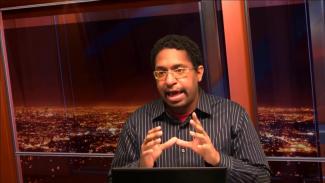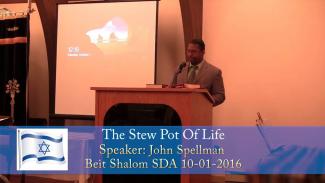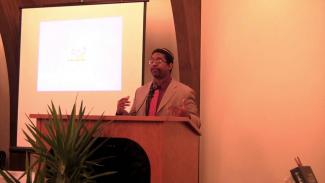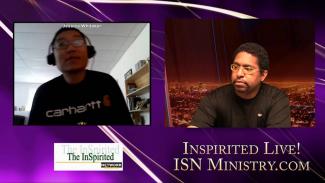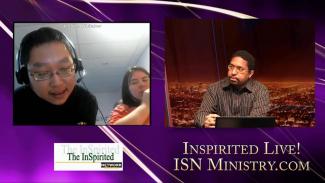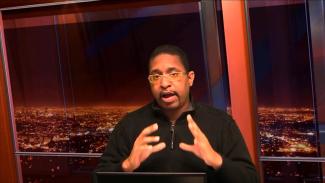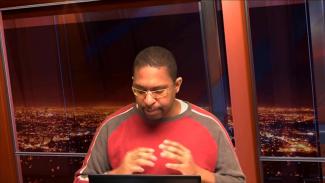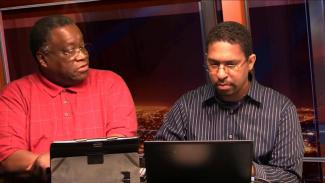Job knew his Redeemer lived! How can we share in this hope today? What were the parallels between the suffering of Job and the suffering of Christ? What critique did Job make against God? How was this question answered in the person of Jesus Christ? When we don’t have all the answers here and now, how can we place our faith in God? In what way was Christ’s suffering different from that of Job?
Topic: Death
To see more broadcasts select show names, a year, or all video media.How do Job’s 3 friends Eliphaz, Bildad, and Zophar attempt to comfort him? What kind of advice to they give? What can we learn from their experience about comforting those who go through tragedy? Is sin always the reason for bad things that happen? Do we always know why people go through difficult experiences? Does God always punish sin? Are there Biblical examples of divine retribution? Is there a point at which people have gone too far?
John Spellman preaches at the Beit Shalom SDA Congregation on 2 Kings 4:38-44. During a time of famine in Gilgal, the sons of the prophets were hungry. Elisha tells them to make a pot of stew. But in one man's effort to gather the ingredients, he accidentally introduces a poisonous substance to the stew pot. The sons of the prophets proclaim that there is death in the pot. How can this relate to our Christian experience today? What is in the stew pot of our lives? Do we sometimes poison ourselves without knowing it?
What can we learn from the end of the story of Job? Does Job have a happy ending, or is he still awaiting his happy ending? What can this book teach us about human suffering for those who love God? Does God bless us in the here and now? What are the rewards of trusting God? Who can we depend on when family, friends, and acquaintances turn their backs on us? Is death truly the end of life’s story? How can the second coming of Jesus impact how we relate to hardship and difficulties in our lives? Did Job understand the doctrine of the resurrection?
Have you ever felt like God was too late? Have you ever had a delay in your answer to prayer? If God loves us, why doesn't He always answer requests right away? When Lazarus died because Jesus was delayed for two days, they might have had similar questions. Jesus taught them a powerful lesson about what happens when people think God is too late. John Spellman preaches at the Beit Shalom SDA Congregation.
This quarter we focus on the role of the church in the community. In what way was man created in the image of God? What was lost because of sin? How does the mission of Jesus seek to restore what was lost? What role does the church plan in the restoration process? How does Satan seek to prevent this? What promises did God make about restoration? What role does humanity play in the process? How does this tie-into what Jesus accomplished on the cross?
What were the last days of Jesus on earth like? How did His followers understand His message? Did Jesus have to go to the cross? What messages are there in the struggles of Jesus for us today? What can we learn from the betrayals of Judas and Peter? What was so significant about the Passover and the time of Jesus' death? How was the last supper similar to a marriage covenant? This week we explore the fulfillment of the prophecies surrounding the death of Jesus and what He accomplished on our behalf.
How did Paul summarize the gospel? What was his take on the reality of rebellion and the Great Controversy? How did Paul suggest that we fight in this spiritual war? What did he mean when he compared the church to members of a body, materials of a building, or crops to be grown? How did Paul answer challenges that suggested that there was no resurrection of the dead? This week we take a look at Paul's teachings and how he illuminated many of these themes. Paul spoke of Jesus as the 2nd Adam and showed how the consequences of Adam's mistake was reversed through Christ's ministry.
As we study rebellion and redemption, what impact did sin have on humanity? How did sin impact the children of Adam and Eve as well as the generations to come? What does all this have to do with the Great Controversy? Did God step in to deal with this crisis or did He leave humanity on its own to fend for themselves? What does God's relationship with Abraham teach us about how sure can we be about God's promises? How do the lives of Jacob, Esau, and Joseph show us the growing process God takes us through to accomplish His plans for us?
This week we start a new series on rebellion and redemption. Why is the world as messed up as it is today? Are the corruption, disease, pollution, and problems we observe part of God's design? What went wrong in the Garden of Eden? Is God to blame for Adam and Eve's mistake? Why did the tree of the knowledge of good and evil exist? Was mankind set up to fail? Why was humanity given power to choose? How does all this tie in with the Great Controversy and with our lives today?
Learn how the gospel of Luke portrays the crucifixion and resurrection. What do these two events mean for humanity? What hope do they provide for Christian believers? Which person in Jesus' final hours are you most like: Peter, John, Judas, the women, Joseph of Arimathea, Pilate, or Herod? This lessons shows us how in some ways we may resemble these individuals in how they related to the death and resurrection of Jesus. This week we explore the cross and the risen savior, without which Christian faith would be in vain.
What did Jesus teach about life after death? What is the Biblical teaching of resurrection all about? Why did Jesus often refer to death as a sleep? What happened in the examples in scripture where Jesus raised the dead? Jesus taught that He is the resurrection and the life. The Son has power to give life to whom He will. In this lesson we explore that power and what it means for us today. We also examine the parable of the rich man and Lazarus.

